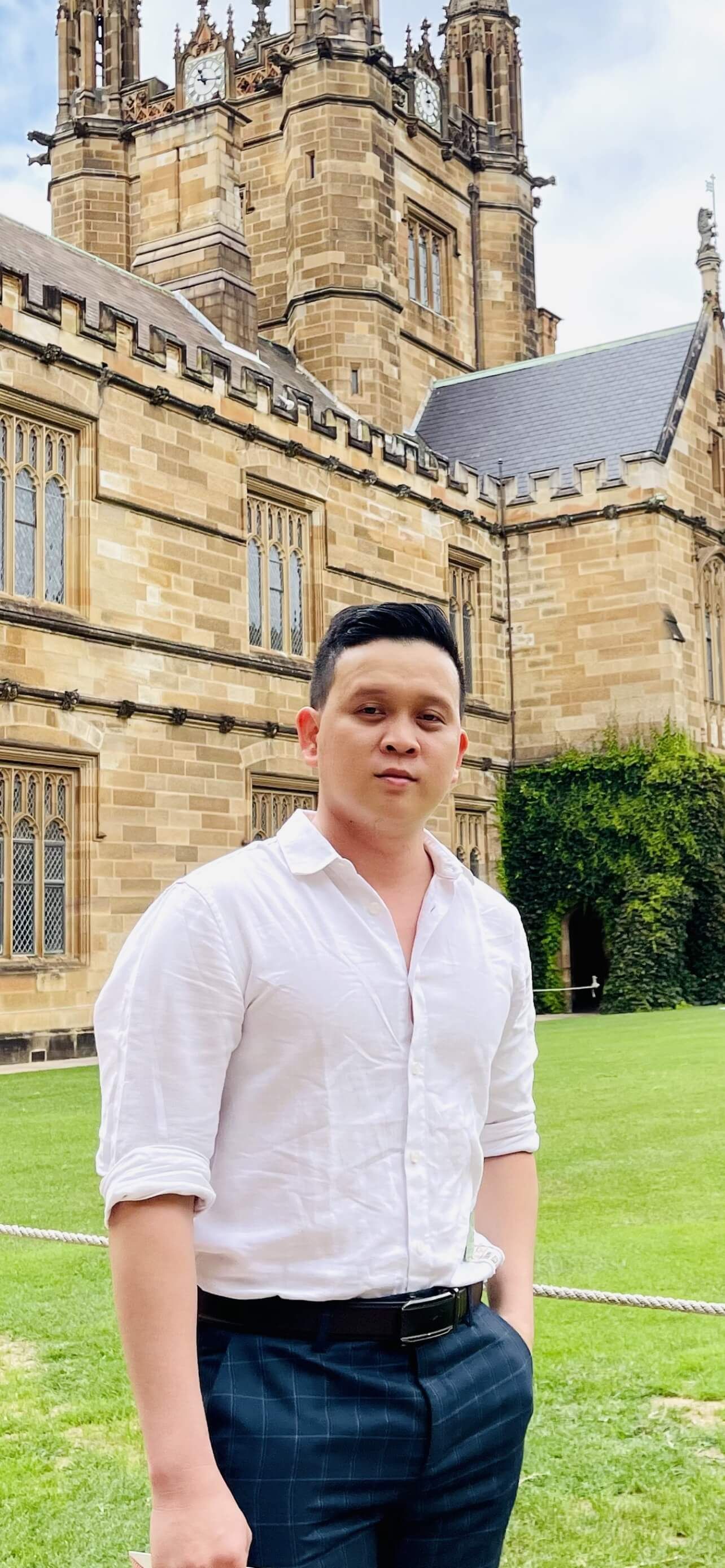9 Questions with Van Thu HUYNH, ACM CRC PhD Student
We’re taking this opportunity to introduce each our PhDs to you – those who are playing a significant role within our program, and in the broader industry.
Here, we speak with Van Huynh, from one of ACM CRC’s university partners, The University of Sydney.
1. Under which ACM CRC Research Program does your PhD project sit?
My doctoral research is part of Research Program 2, focusing on Manufacturing Processes.
2. What is the focus of your PhD?
My PhD focuses on establishing an AI-based monitoring system for assessing the quality of manufactured composite products, including steelwork. This system will optimise inspection requirements and manage compliance risks through extensive big data analysis. The project also encompasses the collection and analysis of productivity data, in-service health monitoring, and the development of novel 3D printing techniques.
3. When did you become interested in this field?
During my academic journey, I recognised the potential of AI-based techniques in improving quality assessment in manufacturing, particularly for composite products like steelwork.
4. What made you interested in it?
The prospect of leveraging advanced technology to enhance product quality and efficiency captivated me, motivating me to explore this area further and contribute to its advancement.
5. What do you hope to achieve through your PhD? What challenges are you hoping to solve?
I aim to apply my knowledge and technical skills across diverse engineering domains, collaborating closely with multidisciplinary researchers at the intersection of engineering, data science, and applied mathematics to drive innovation and solve real-world problems.
6. What are your long-term goals/ambitions?
I aim to apply my knowledge and technical skills across diverse engineering domains, collaborating closely with multidisciplinary researchers at the intersection of engineering, data science, and applied mathematics to drive innovation and solve real-world problems.
7. What’s the best thing about being an ACM CRC PhD student?
An ACM CRC PhD student has an opportunity to translate theoretical knowledge into tangible solutions, bridging the gap between academia and industry. Additionally, the program can provide PhD students with essential knowledge of core technical skills such as problem framing, envisioning future possibilities, enhancing communication and effective collaboration skills, and addressing ethical concerns and the human-centric perspective.
8. What one piece of advice would you give to people thinking of undertaking a PhD in the composites manufacturing area?
One valuable piece of advice for those considering a PhD in the composites manufacturing area is to maintain a multidisciplinary approach. This field intersects various domains, including engineering, artificial intelligence, materials science, and data analytics. Embracing this interdisciplinary perspective will not only broaden your understanding but also foster innovative solutions to complex challenges. Additionally, stay abreast of the latest advancements in AI, machine learning, and manufacturing technologies to ensure your research remains at the forefront of this rapidly evolving field. Lastly, cultivate strong collaboration and communication skills, as effective teamwork and knowledge exchange are essential for success in tackling real-world problems in this domain.
9. Tell us something about you that would surprise/impress people?
One of the aspects of my background that surprises people is my passion for blending AI into engineering applications, while my expertise lies in civil engineering. This unexpected fusion allows me to approach challenges with a unique perspective, leading to innovative solutions that impress others. Additionally, I have made significant contributions to the field of engineering through my track record of publishing in prominent peer-reviewed journals, such as Advances in Engineering Software, Engineering Structures, Reliability Engineering and System Safety, Steel and Composite Structures, and Engineering Applications of Artificial Intelligence.

Interested to know more?
Visit our Education and Training page to learn more on our HDR Program, and how it’s helping to achieve industry transformation.

Australian Composites Manufacturing
Cooperative Research Centre
(ACM CRC)
Level 1, Greenhouse
180 George Street
SYDNEY NSW 2000
SITE LINKS
FOLLOW US
Acknowledgement of Country
In the spirit of reconciliation, ACM CRC
acknowledges the Traditional Custodians
of country throughout Australia and
their connections to land, sea and community.
We pay our respect to their Elders past
and present and extend that respect
to all Aboriginal and Torres Strait Islander
peoples today.
STAY INFORMED
Australian Composites Manufacturing CRC
Website by Rogue Web Design



